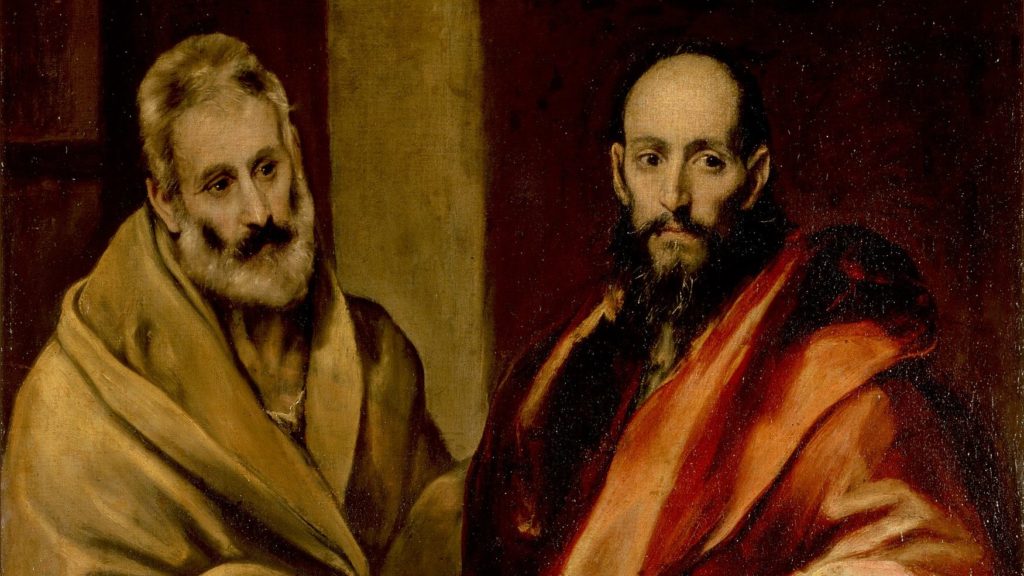“When Dante saw the great Apostles in heaven, they affected him like mountains.” So wrote C.S. Lewis, who imagined that an encounter with the apostles would be “rather an overwhelming experience.”
As June draws to an end, we celebrate the memory of the apostles Peter and Paul. It’s a great feast in the Church — the day when the Holy Father gives a special vestment, the pallium, to all the new archbishops in the world, as a sign of their office and their unity with him as the successor of St. Peter. Once it was my privilege to witness this at St. Peter’s Basilica in Rome. It was indeed an overwhelming experience.
I sometimes wonder, though, whether the apostles seemed so imposing to their contemporaries. Did Peter and Paul exude such charisma that people found their proclamation irresistible and irrefutable?
The evidence seems to indicate otherwise. Paul gave his level best in Athens, and yet he failed to have much of an impact. Peter hiked all the way to Rome, the capital city of the Empire, and there he preached and taught. But at his death he left a city largely unconverted, a Church minuscule and seemingly defenseless before the scorn of the media and the power of the state.
It is only from the distance of centuries that we can see Peter and Paul as they were and are — as giants, as mountains. Yet so they were in the order of grace, even as they served the Church on earth.
Sometimes people seem larger than life simply because we’re so close to them. When we distance ourselves, in time or space, we can see them more accurately, with all their faults and flaws.
Some people, however, seem larger than life simply because they are. That is what a canonization confirms: that these men responded to God’s grace in an extraordinary way, living lives of holiness in the world and heroic virtue.
We will never, this side of the veil, see our own lives with such accuracy. What we judge to be our greatest accomplishments — what we post on social media or tout on our resume — may actually prove to be of little value to us or to the world. The actions, perhaps, that we wish to forget may more truly define us: our losses, our defeats, our suffering. But think of Paul’s failures. Think of Peter’s. Think of the passion and death of Jesus Christ. “No, in all these things we are more than conquerors through him who loved us” (Romans 8:37).
Peter and Paul may have seemed the victims on June 29 in the year A.D. 64, and the emperor Nero may have seemed the conqueror. History proved otherwise.
You and I will certainly know our share of challenges in life. I pray that we will be faithful through them all — and more than conquerors through him who loves us still.

